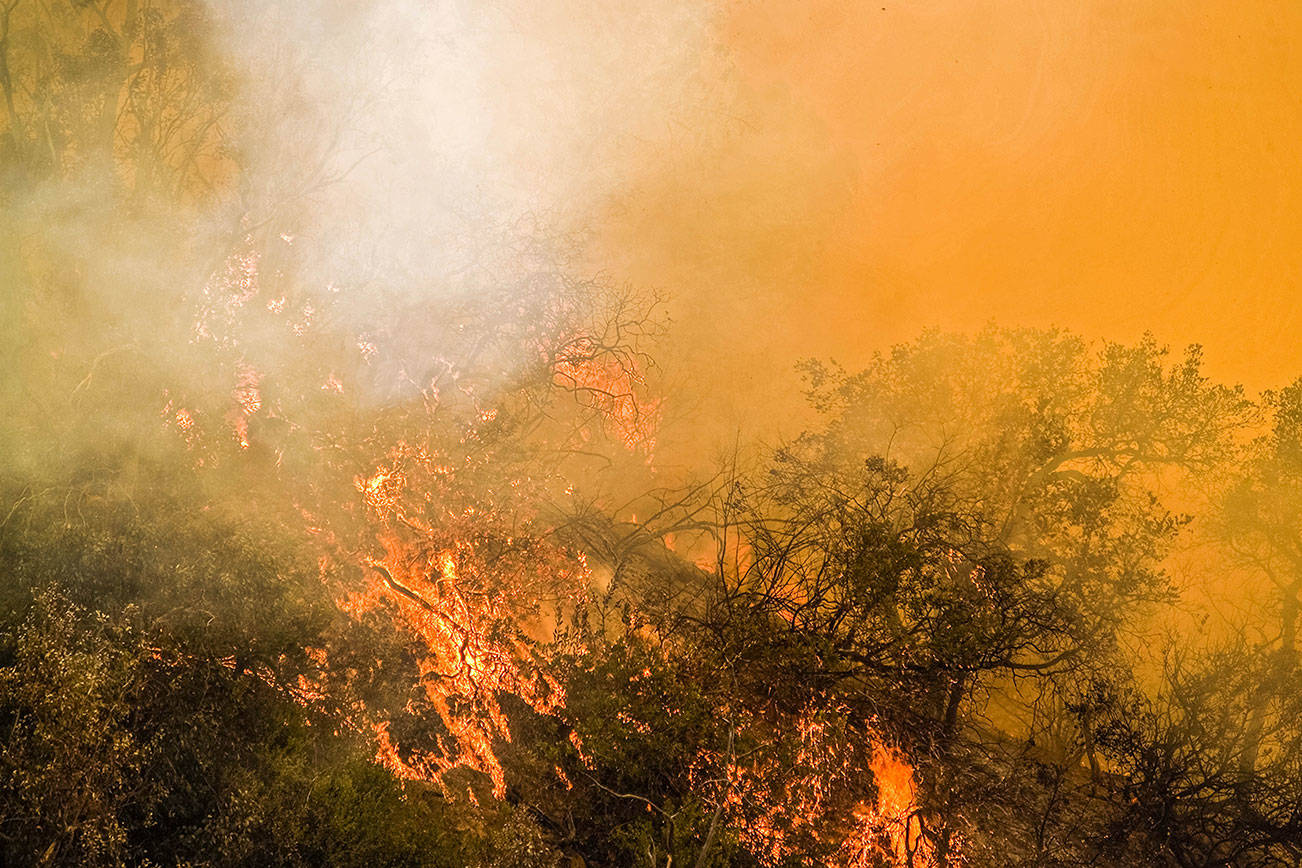With Western States wildfires growing in size and destroying more homes, farms and businesses, there is a need for new tools and approaches. The infernos are spreading so fast they are outstripping our ability to fight them in traditional ways.
Meanwhile, the San Francisco Chronicle reported last November: “Over the course of just a few weeks, a major fire can pump more carbon dioxide into the atmosphere than California’s many climate change programs can save in 12 months. Scientists debate whether California’s vast forests are emitting more carbon dioxide through fires than they absorb through plant growth.”
Last year, wildfires nationwide consumed 12,550 square miles, an area larger than Maryland. The federal government spent more than $2.7 billion on firefighting – a record that far surpassed the previous high point of $2.1 billion set in 2016.
In California last year, nearly 8,400 homes and structures were destroyed, killing at least 45 people including two firefighters. Estimates suggest that the final state toll will be more than $13 billion. Wildfires swept into heavily populated areas and accelerated so rapidly that residents barely had time to pack up and leave.
Those economic damages do not include the continued revenue losses to local merchants in rural fire impacted areas. For example, businesses in the Columbia River Gorge are stilling feeling the effects of the 48,000 acre fire last summer because many of the popular hiking trails are too dangerous to open.
One new tool is the converted jumbo jet. During the height of the Montana wildfires last summer, a DC-10 tanker was based at Helena’s regional airport and loaded with 10,000 gallons of retardant for each mission.
Now there is a 747 modified tanker which helped to douse fires in Chile and Israel. It has FAA certification, but needs U.S. Forest Service approval.
Last May, the agency said it would only give contracts to planes with a dispensing capacity of 3,000 to 5,000 gallons. The 747’s capacity is 19,000 gallons.
However, CalFire decided to use the 747 when massive fires burnt out of control near heavily populated areas surrounding San Francisco and Los Angeles.
Along with climate change, preventing and stopping mammoth wildfire is gathering lots of attention in Congress these days.
It is no longer just a rural issue. Dense choking smoke covered Seattle and Portland again last summer. It is not only an immediate health hazard to people and pets but add to greenhouse gases to our atmosphere.
People in cities are beginning to see the fire damage which increasingly threatens to clog our streams, rivers and lakes. Barren slopes are susceptible to erosion from heavy rains and rapidly melting snow.
Elected officials are revisiting the benefits of forest management tools such as logging, thinning, planting and forest roads. Some objectionable past practices are worth reconsidering. For example, planting trees on narrow shelves cut into the steep hillside can allow young seedlings to receive much needed moisture and slow erosion.
We cannot eradicate wildfires. They have been part of our ecology for thousands of year. When forests are tinder dry and strong hot winds blow, conditions are ripe for an extreme fire season such as in 2017.
We’ve learned a great deal about wildfires since the 1930s when we would send crews into remote on horseback with accompanying mule trains to fight fires. We now have an armada of aerial tankers available.
We also know a lot more about managing our forests. Hopefully, we can deploy our best eco-tools to help cleanse our air and water, enhance fish and wildlife habitat, and to convert C02 into life-giving oxygen. That means we need to think outside the box.
Don C. Brunell is a business analyst, writer and columnist. He recently retired as president of the Association of Washington Business, the state’s oldest and largest business organization, and now lives in Vancouver. He can be contacted at theBrunells@msn.com.
Talk to us
Please share your story tips by emailing editor@kentreporter.com.
To share your opinion for publication, submit a letter through our website https://www.kentreporter.com/submit-letter/. Include your name, address and daytime phone number. (We’ll only publish your name and hometown.) Please keep letters to 300 words or less.

